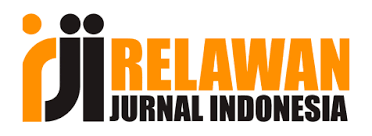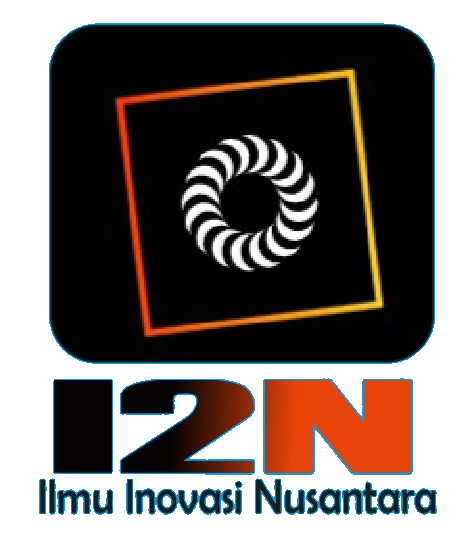Digitalpreneurship Incubator Curriculum Development to Improve Entrepreneurship Skills
DOI:
https://doi.org/10.58557/(ijeh).v4i1.211Keywords:
Syllabus, Digitalpreneurship, Entrepreneurship, incubatorAbstract
The utilization of today's digital technology impacts the marketing world, which delivers change pattern transactions. People who used to be offline are switching to online transactions. There exists an effort to increase entrepreneurial skills to carry out business-based digitalpreneurship. Incubator digitalpreneurship is one program that trains and improves internal skills for businesses that use digital marketing. The research aims to develop a syllabus incubator digitalpreneursip that experts have validated. Digitalpreneurship is the type of businesses that take advantage technology For marketing. Incubator as an improvement program soft skills entrepreneur To get knowledge of the latest concepts and techniques based on era. Pre-incubation, incubation, and post-incubation are all components of an incubator business. Approach study Uses stage development Plomp, which consists of stages: stage investigation initial, stage design, stage realization/construction, stage testing, and stage implementation. A validation sheet expert form questionnaire was used for data collection. Observation is also used To decide on material lesson syllabus. Created syllabus evaluated by four professionals. Based on the findings CVR calculation, methodology data analysis is presented in a detailed way. Arrange and arrange curriculum education based on needs used To guide results development. The syllabus is Arranged based on Content Identity, Standard Competencies (SK), Basic Competencies (KD), Subject Materials, Activities Learning, Indicators Achievement Competency, Assessment, Time Allocation, Learning Resources, and Language and developed syllabus with allocation time for one semester with the enhancement of skills management marketing using social media and websites. The syllabus has already been tested. Try to team with the validator expert and state the category Good. The syllabus obtains a response to the indicator insistence necessary competencies be repaired. The developed syllabus can be accepted as a reference in implementing a digitalpreneurship incubator
References
Adrian, D., & Mulyandi, MR (2021). Benefits of social media marketing Instagram on the formation of online shop brand awareness. Indonesian Journal of Social Science, 2 (02), 215-222.
Kuspriyono, T. (2020). Marketing strategy Community Trader Online Based and Personalized Marketing On Marketing Performance. Journal Secretarial And Management, 4 (2).
Nafi'ah, BA (2021). Readiness Digital Talent Policy in Indonesia. Public Administration Journal of Research, 3(1)
Nuraisyah, A. (2017). Analysis of Business Incubator Performance in Assisting Tenant Businesses (Business Development)(Study Case Incubator Business Solo Technology Technopark).
Oktiyani, R. (2020). Developing a Marketing Strategy for Barokah Chicken Through Digital Marketing. Journal Equator Informatics, 4 (2), 183-190.
Rahmi, VA (2020). Prospect Practice Micro Incubator "Entrepreneur Passion" in Building Entrepreneur Students (Millennialpreneur). JMK (Journal Management and Entrepreneurship), 5 (3), 217. https://doi.org/10.32503/jmk.v5i3.1124
Rosita, CD, Yana, E., & Noto, MS (2023). Fostering Innovation: The Role of Business Incubator Centers in Student Startups. In International Conference on Intellectuals' Global Responsibility (ICIGR 2022) (pp. 587-592). Atlantis Press.
Rukmana, AY, Priyana, Y., Rahayu, M., Jaelani, E., & Manik, DEM (2023). Impact Policy Government To Ecosystem Entrepreneurship: Case Study Incubator Business in Indonesia. West Science Journal of Economics and Entrepreneurship, 1 (03), 216-225.
Saputra, HT, Rif'ah, FM, & Andrianto, BA (2023). Application of Digital Marketing as a Marketing Strategy to Increase the Competitiveness of MSMEs. Journal of Economics, Management, Business, and Entrepreneurship, 1 (1), 29-37.
Tadjuddin, T., & Mayasari, N. (2019). Economy -Based MSME Development Strategy Creative In City Palopo. Dynamic: Journal of Islamic Management and business, 2 (1).
Utami, DHW (2016). Analysis of the Role of Incubators Business To Tenant Success Based on Reith-7s Framework Using Analytic Network Process Method (Study Case On UBpreneur ) (Doctoral dissertation, UNIVERSITY BAKRIE).
Widiyanti, R. (2021). Implementation learning entrepreneurship in college tall vocational. In Proceedings of the Industrial Research Workshop and National Seminar (Vol. 12, pp. 1509-1515).
Widjanarko, H., Endah, E., & Santosa, H. (2011). Learning Based Incubator Business (Business Incubator Learning/BIBL) For Develop Soul Entrepreneurship. In Seminar International &Call Paper Towards Excellent Small Business. Program Studies Management Faculty Economy University Muhammadiyah Yogyakarta.
Yudha, S., & Sandy, M. P. (2023). Development Of Learning Devices In Agricultural Chemistry Courses In Agroecotechnology Study Program Based On Kkni Curriculum. Educational Insights, 1(2), 75-80.
Downloads
Published
How to Cite
Issue
Section
License
Copyright (c) 2024 Alif Ringga Persada, Agung

This work is licensed under a Creative Commons Attribution-ShareAlike 4.0 International License.














